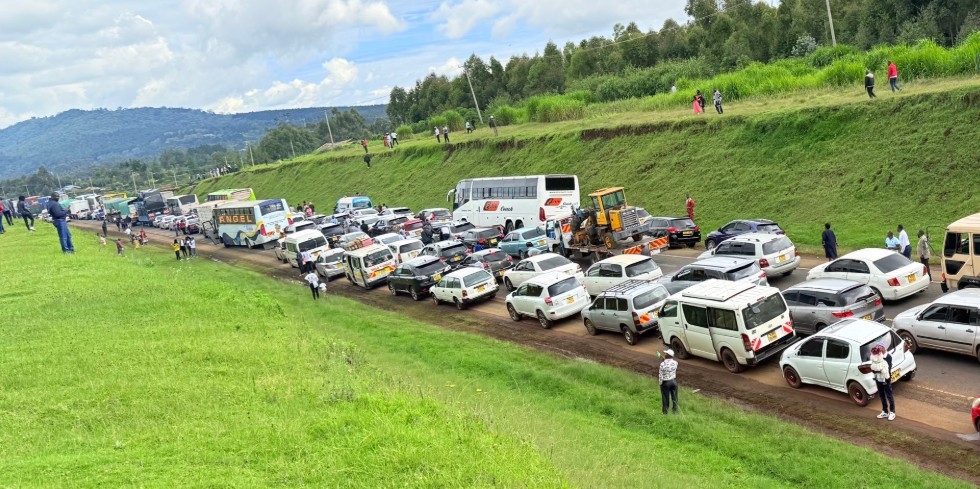A new caucus has been formed to push for faster land reforms that are people-centred, inclusive and gender-responsive.
The Ardhi Caucus seeks to ensure that tenure security is realised.
The caucus is a network of state and non-state actors who have come together to advance land justice under five themes.
The themes include protection, recognition and promotion of community-held land; tenure security for smallholder farmers; access to land justice; women's land rights, and climate change adaptation and mitigation.
The new caucus has been formed by the Kenya Land Alliance and Landesa.
KLA is an umbrella network of civil society organisations and individuals committed to effective advocacy for the reform of policies and laws governing land in Kenya.
Landesa is a global NGO that works to secure land rights for millions of the world’s poorest, mostly rural folk, to provide opportunities and promote social justice.
Kenya Land Alliance CEO Faith Alubbe said the slow implementation of land reforms is a result of a multiplicity of stakeholders and diversity of stakes, interests, positions, perceptions and ideologies without a common space to build consensus.
“The divisions and disjointed interventions amongst the state and non-state actors on the implementation of land policy and laws have emerged as a critical threat to securing land tenure,” Alubbe said.
Building consensus among stakeholders is crucial in sustaining momentum and pressure for positive change.
Landesa Africa regional director Everlyne Nairesiae said there is a need for secured land tenure for sustainable development.
“There is a need for synergies and pulling together of different stakeholders in the land sector,” she said.
The caucus gives everyone the opportunity to be at the table, a move that will improve decision-making and enhance resource allocation to the sector.
Approximately 70 per cent of the land in Kenya is held by communally. For women who live in community land to feel secure, the land needs to be protected, recognised and registered in the name of the community.
The Constitution of Kenya 2010 and the Community Land Act, 2016 provide for registration of community land. The process has, however, been slow.
A study released in October last year showed that only 46 group ranches have successfully transitioned into community land nationally, representing 14.6 per cent.
The study, ‘Monitoring Transition of Group Ranches to Community Land in Kenya’, shows that there were 315 undissolved group ranches at the time of enactment of the Community Land Act, 2016.
The study was initiated by the National Land Commission in collaboration with Namati in 2021 and concluded in May this year.
More than 60 per cent of all land in Kenya is communal.
The study found that the slow rate of progress is due to conflicts among the group members (39.7 per cent), financial constraints (22.5 per cent), inadequate information on processes and procedures (20.6 per cent) and challenges related to the registration processes (17.2 per cent).
The Ardhi Caucus will also deal with the myriad of challenges facing smallholder farmers in the country, who contribute around 70 per cent of the food produced.
Some of the challenges facing smallholder farmers that the caucus will deal with include succession, land boundary disputes and associated conflicts, customs, and traditions that deny women access to land.
The caucus will also seek to address challenges facing women, men, youth, and persons with disabilities.
They include ambiguous procedures, arbitrary decisions, and high transaction costs that hinder access to land rights.
The caucus will deal with factors that hinder women from owning land.
The Federation of Women Lawyers in Kenya says the country has made positive steps in developing a constitution that reflects international standards of gender equality and enacting laws to give effect to the constitutional provisions.
Article 40 of the constitution guarantees the right to property ownership, while Article 60 ensures equitable access to land and security of land rights.
However, due to the deeply entrenched patriarchal norms and attitudes, it is still difficult to attain the equality envisioned by the Constitution of Kenya 2010.
In its training handbook, Fida says even though the estimated ratio of women to men is even, only five per cent of land title deeds in Kenya are held by women alone or jointly with men.
Just one per cent of land titles are held by women alone whereas 89 per cent of the subsistence farming labour force is provided by women.
The women's federation says 70 per cent of labour in cash crop production is provided by women, and about 32 per cent of households are headed by women.
“A complex mix of cultural, legal and social factors and obstacles stand in the way of women realising equal property rights in Kenya. The few statutes that could advance women’s property rights in the past deferred to religious and customary property laws that privilege men over women.”
Fida says some of the challenges hindering women from owning land include cultural beliefs, lack of awareness, discriminatory official responses, an expensive legal system, fear, lack of participation and discrimination encouraged by the law.
To address the land ownership challenge, the caucus will raise awareness on the importance of women’s land rights among policymakers, community leaders and the general public.
Ardhi Caucus will also empower women with knowledge and skills to assert their rights and advocate for gender-responsive land policies and programmes.
The caucus will foster dialogue and collaboration between men and women to challenge traditional gender norms and promote equitable access to land resources, provide legal aid and support services to women facing land tenure insecurity or land-related disputes.
Ardhi Caucus will also mainstream climate considerations into land use planning, land tenure systems and natural resource management policies to support building of resilient communities.












